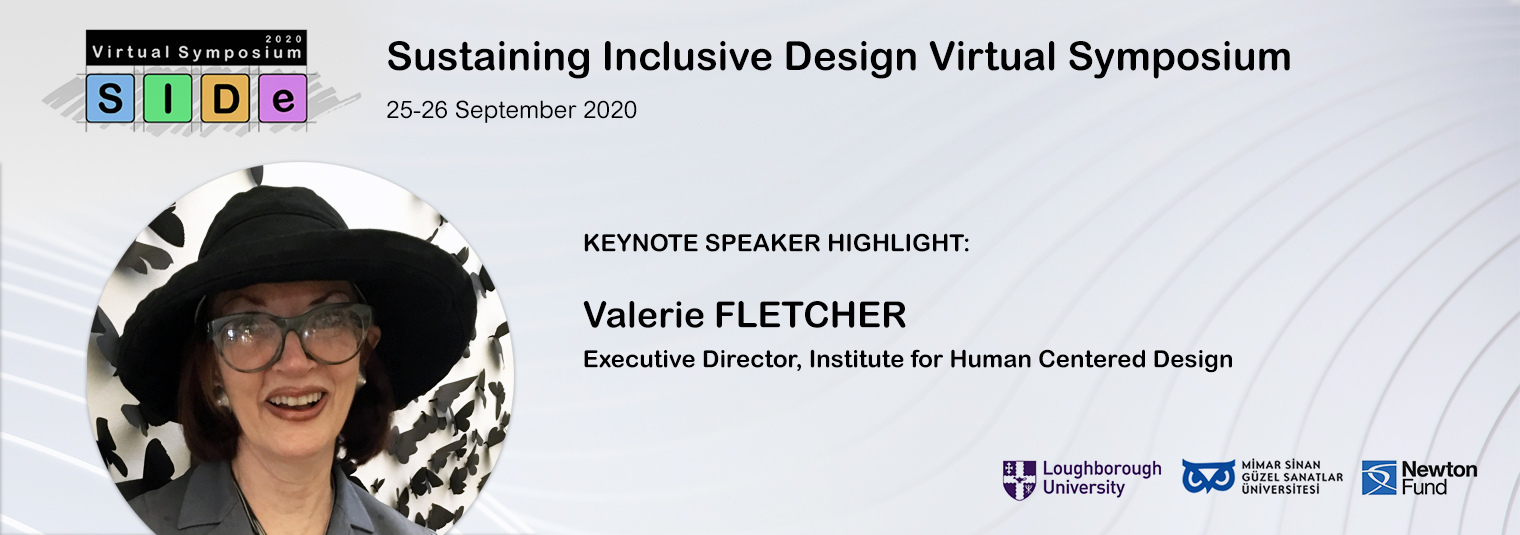
Using the Potent Policy Platform of the WHO Contextual Definition of Disability to Affirm the Power of Design
Valerie FLETCHER, Executive Director, Institute for Human Centered Design
The World Health Organization’s (WHO) International Classification of Function, Disability, and Health (ICF) of 2001 is the current gold standard for framing disability globally. It starts with the foundational premise that impairment is a universal human condition if one lives a typical lifespan. It asserts that functional limitation is dynamic and must be understood in terms of participation in social roles. And environmental factors, including physical and social contexts, are needed to identify the barriers and facilitators that determine functional ability. Designing is a social art and creates the human context inclusive of physical, information, communication, policy, service, and attitudinal environments. It’s mutable. We can design facilitating contexts that minimize limitations and allow everyone to live self-directed lives.
From the start, the WHO ICF endorsed Inclusive Design as the most promising framework for realizing a positive impact.
Fletcher will share examples of the Institute for Human Centered Design’s (IHCD) practice with particular attention to policy development at the project, institutional, public agency, and governmental levels. Practice examples will include public transit, multi-family housing, museums, public parks, municipalities.
She will also provide examples of IHCD’s contextual inquiry research method of direct “User/Expert” engagement to evaluate existing physical, digital and service environments for what works and what fails in order to generate data to inform designing solutions. She will pay particular attention to the high prevalence conditions that are seldom captured in the standards and codes: difficulty walking but not using wheelchairs, legal blindness with low vision, hearing loss, and the spectrum of conditions impacting brain function. A critical role of inclusive design is to anticipate the ordinariness of those conditions and design in solutions beyond a baseline of accessible design.
Valerie FLETCHER
Fletcher has been Executive Director since 1998 of the Institute for Human Centered Design (IHCD), founded as Adaptive Environments. Fletcher writes, lectures and works internationally. She oversees consultation and design services to public and private entities in the US and globally. She created the IHCD User/Expert Lab which has over 500 people with lived experience of a physical, sensory or brain-based functional issues. Her research focus is generating data to inform designing on the rising prevalence of conditions that impact brain function inclusive of mental health, neurodiversity, learning disabilities, brain injury and cognitive limitations.
Fletcher’s career has been divided between design and social justice. Her social justice work in racism and public mental health centered on participatory engagement
She has been a Special Advisor to the UN Department of Economic and Social Affairs. She is the North American representative on the Board of the International Association for Universal Design (IAUD) in Japan. Fletcher has a master’s degree in ethics and public policy from Harvard University. The Boston Society of Architects awarded her the Women in Design award in 2005. She is a member of the Board of Trustees of the Boston Architectural College.